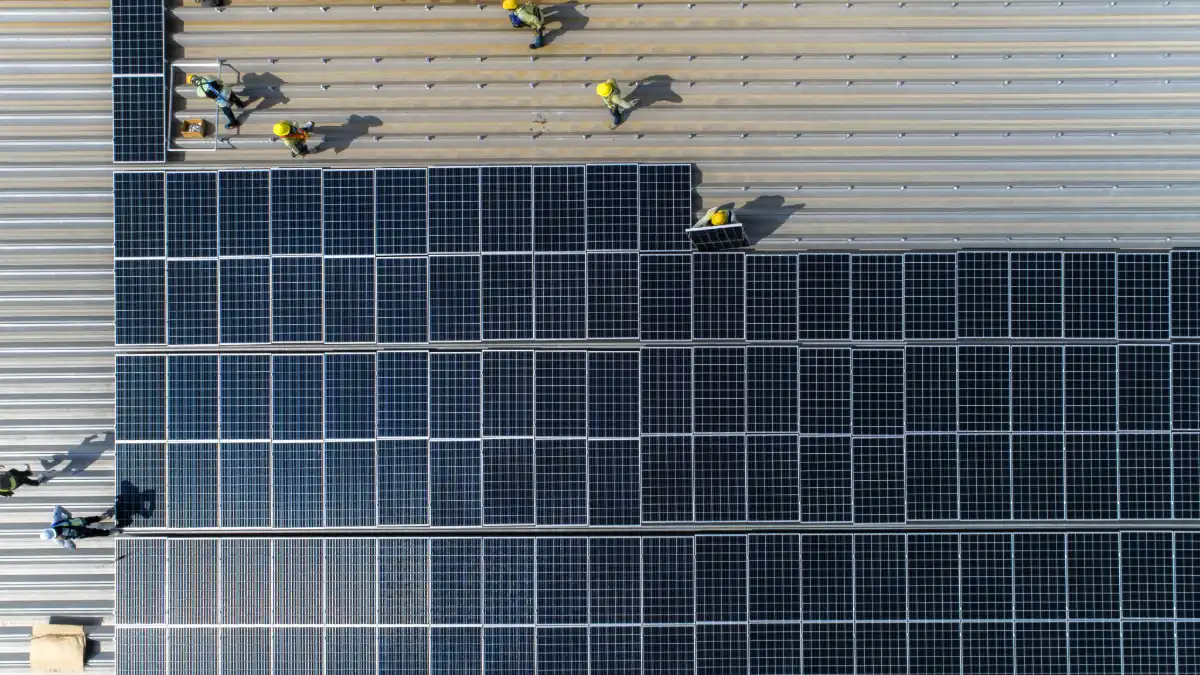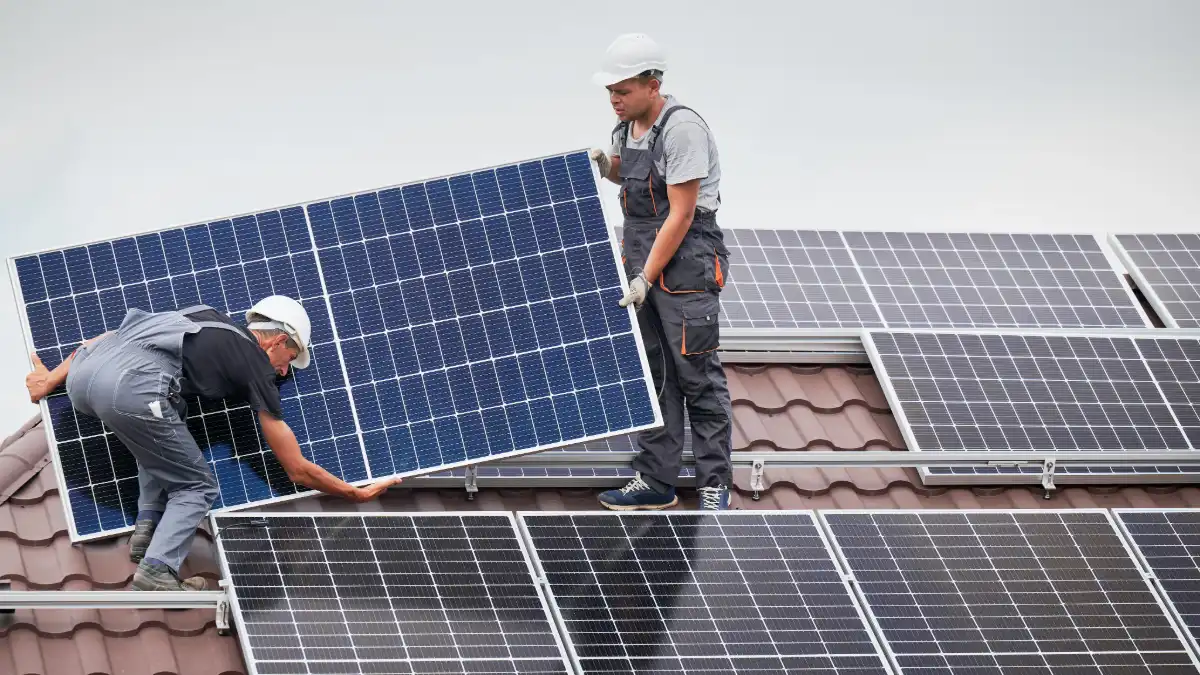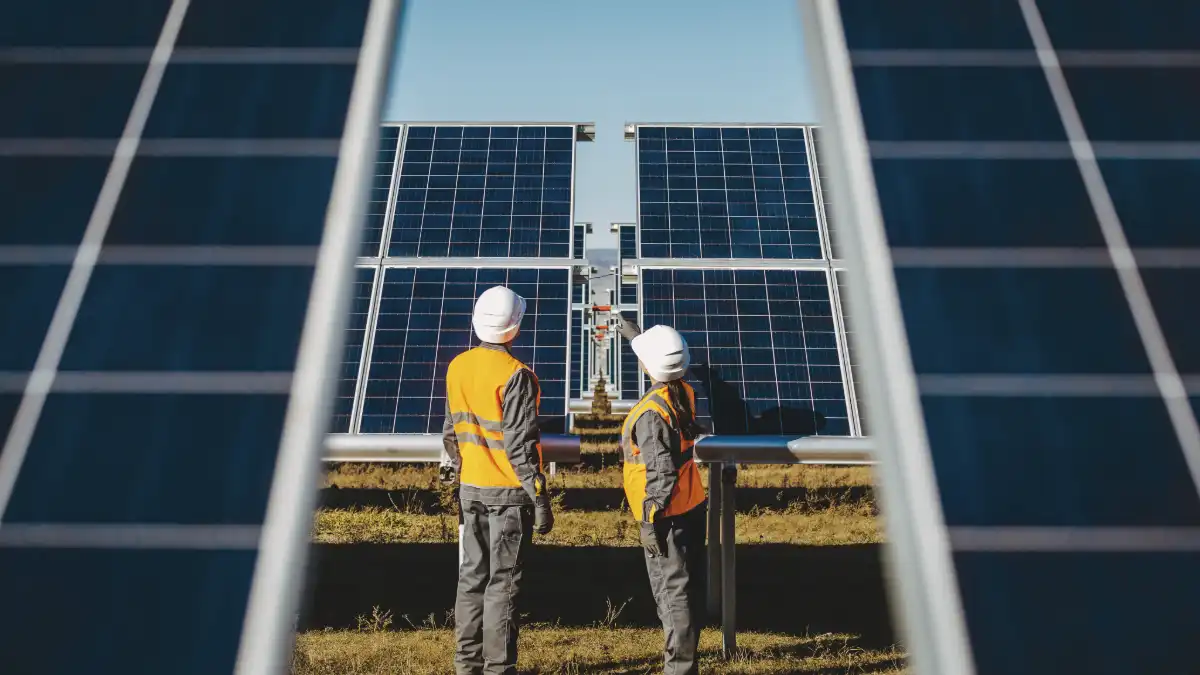Solar Installation Cost Calculator: Your Essential Pricing Tool

Our free solar installation cost calculator:
Designed to streamline the pricing process for solar professionals like you. In a competitive market, providing accurate and timely quotes can make all the difference in winning new business. This solar panel cost calculator is more than just a simple tool; it's a specific resource built to help you quickly estimate solar installation costs for your clients, giving you a competitive edge and boosting your sales efficiency. Say goodbye to manual calculations and hello to precise, rapid estimates that impress your customers.
How our solar panel calculator helps your business.
This solar panel calculator is created to address the unique challenges faced by small to medium-sized solar installation companies. It provides a robust framework to help you generate accurate bids, manage client expectations, and ultimately close more deals. By inputting key project variables, you'll receive a detailed breakdown of potential costs, allowing you to present transparent and professional proposals.
This not only saves you valuable time but also builds trust with your clients by demonstrating your expertise and commitment to clear pricing.

Why professional solar panel installation matters.
While our calculator provides the numbers, it's crucial to remember that a successful solar project hinges on professional installation. For customers, investing in solar panels is a significant decision, and they rely on experts to ensure safety, efficiency, and longevity. Improper installation can lead to reduced energy output, costly repairs, and even safety hazards.
Emphasizing the importance of choosing a qualified and experienced installer reassures clients that their investment is protected, reinforcing your value beyond just the cost of panels.
Ensures safety and compliance with local regulations.
Optimizes system performance for maximum energy output.
Extends the lifespan of the solar power system being installed.
Protects the customer's long-term investment and therefore your installation reputation.

Basic solar construction and components.
Understanding the fundamental theory behind solar energy and its key components is essential for any solar professional. Solar panels, made of photovoltaic cells, convert sunlight directly into electricity. This direct current (DC) then flows to a PV inverter, which transforms it into alternating current (AC) suitable for home or business use. The efficiency of this conversion, the quality of solar cells, and the design of the overall system, including the Balance of Systems (BoS) components like junction boxes and MC4 connectors, all play a critical role in a system's performance.
Photovoltaics convert sunlight into electricity.
PV Inverter converts DC to AC for grid use.
Solar Cells are the basic building blocks of a panel.
Balance of Systems (BoS) includes all non-panel components.

Solar glossary terms and definitions.
The solar glossary is an essential resource for anyone looking to understand the complex terminology associated with solar energy systems. Understanding these terms is crucial for making informed decisions about solar energy investments and installations.
PVWatts: A National Renewable Energy Laboratory (NREL) online tool that estimates the electricity production of grid-connected photovoltaic (PV) systems. It's often used for performance modeling.
kWh (Kilowatt-hour): A unit of energy equal to one kilowatt of power sustained for one hour. It's the standard unit used to measure electricity consumption.
Photovoltaics (PV): The technology that converts light into electricity using semiconductor materials. This is the core principle behind solar panels.
PV Inverter: An electrical device that converts the direct current (DC) electricity produced by solar panels into alternating current (AC) electricity, which is the type of electricity used in homes and businesses and by the electrical grid.
Solar Cells: The individual, small semiconductor devices that convert sunlight into electricity. Multiple solar cells are connected to form a solar panel.
Balance of Systems (BoS): All components of a photovoltaic system other than the solar panels themselves. This includes inverters, mounting hardware, wiring, conduit, combiner boxes, and disconnects.
Crystalline Silicon: The most common semiconductor material used in solar cells, available in monocrystalline (single crystal) and polycrystalline (multiple crystals) forms.
Electric Battery: A device that stores electrical energy for later use. In solar systems, batteries store excess solar energy generated during the day for use at night or during power outages.
Junction Box: An enclosure that protects electrical connections and wiring, typically found on the back of solar panels. It serves as a central point for the panel's wiring and often contains bypass diodes.
MC4 Connectors: A type of single-contact electrical connector commonly used for connecting solar panels. They are designed for high durability, water resistance, and UV resistance, ensuring a secure and reliable connection.
Solar Tracking: A system that automatically adjusts the orientation of solar panels to follow the sun's path across the sky throughout the day, maximizing energy capture.

Ready to streamline your Solar Sales?
Our free Solar Installation Cost Calculator is just one of the many ways Servlink Marketing helps solar businesses thrive. If you're looking to consistently generate high-quality leads, optimize your sales processes, and expand your market reach, our specialized digital marketing for solar services are designed for you. We partner with solar installation companies to build robust sales and marketing systems that deliver measurable results. Let's discuss how we can help you capture more market share and achieve sustainable growth.
Common questions
How do I accurately estimate the number of solar panels a customer needs for their property?
This is a core question. Explain that it depends on the customer's average energy consumption (kWh), available roof space, panel efficiency, and local sunlight hours. Mention that historical utility bills are crucial.
What are the primary factors that influence the overall cost of a solar installation project?
Break down cost drivers: system size (kW), type of panels (mono vs. poly, efficiency), inverter type (string vs. microinverters), mounting system (roof type, ground mount), labor costs, permitting fees, interconnection fees, and any necessary electrical upgrades.
How does roof type and condition impact the installation process and the final cost estimate?
Discuss challenges and cost implications for different roof types (e.g., asphalt shingles vs. tile vs. metal), roof pitch, age/condition (potential for re-roofing), and obstacles like chimneys or skylights. Mention that these factors influence labor time and specific mounting hardware.
What are common permitting and inspection requirements that can affect project timelines and costs?
Explain that local regulations vary widely. Mention the need for electrical permits, building permits, and sometimes zoning approvals. Highlight potential delays and the associated costs of permit applications and required inspections.
